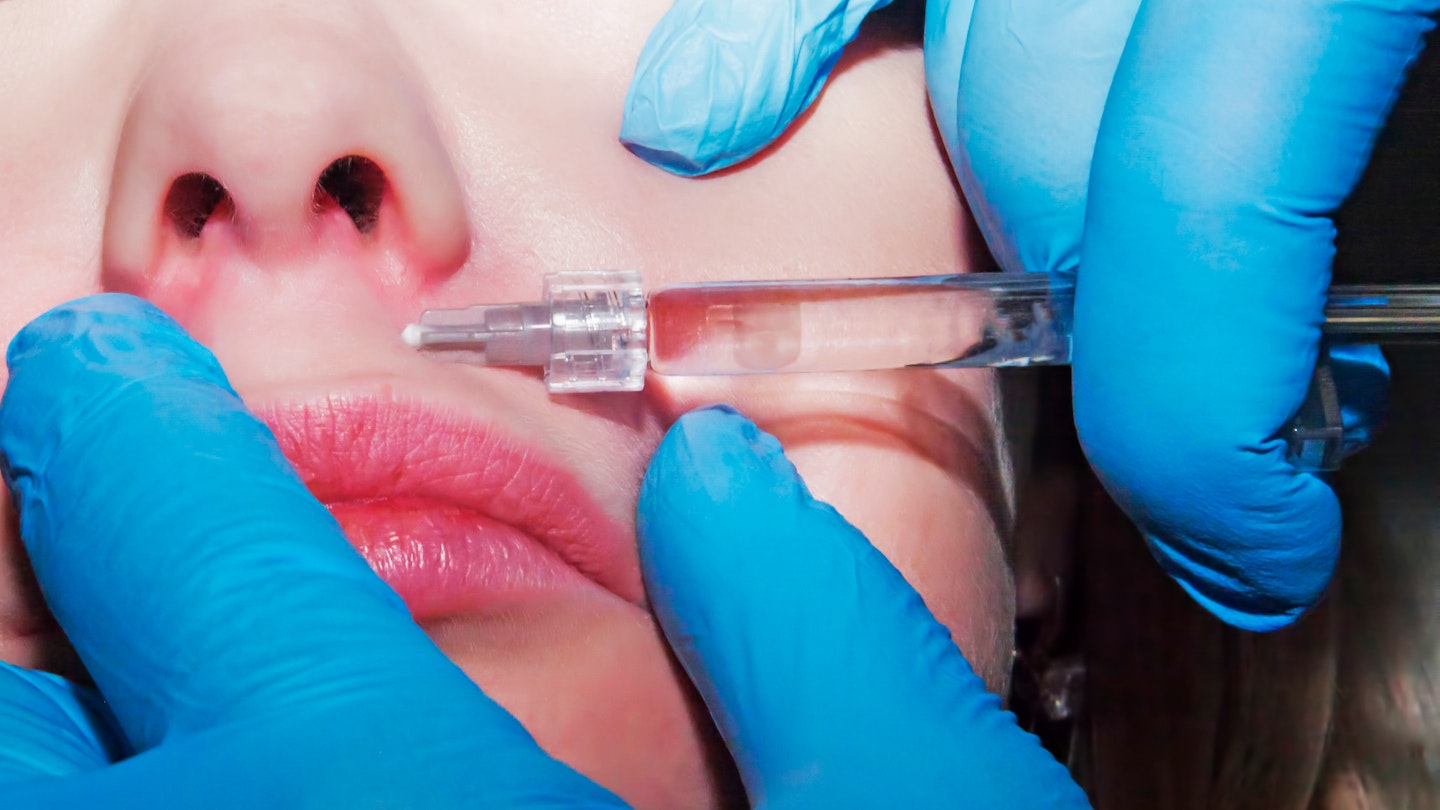‘If done incorrectly, dermal filler complications can cause infection, blindness and skin necrosis’ lists Dr Terry Loong the co-founder and medical director of W One Knightsbridge clinic. As it stands, medical training is not a prerequisite for performing a filler procedure, but a lunch break-length appointment can result in a life-changing hospital visit. It’s with this in mind that the Joint Council for Cosmetic Practitioners (JCCP) have banned beauticians from joining their new aesthetic medicine register.
After a report from 2013 showed the industry was less regulated than toothpaste, the government asked the JCCP to create a framework of competency within the industry. It aimed to highlight not just those with the highest standing of training, but those practising. However, a threatened boycott by doctors and nurses put a pin in the register. After rethinking, it appears, they decided to only list those with medical training. Meaning: beauticians were struck from the register, though they are still by the JCCP standards allowed to provide other treatments such as skin rejuvenation, peels, lasers and light. Why? The ongoing risk of delivering treatments with Botulinum Injectable Toxins and dermal filler is too high.
Beauticians allowed to inject have to hold a Level 7 qualification in the UK, but this isn’t enough according to Dr Paul Charlson, President of the British College of Aesthetic Medicine. ‘Level 7 takes into account the specific skill set of injecting a filler - not the ethics, psychological assessment, or ability to deal with emergencies that come with a clinician's training,’ he tells Grazia.
‘A lot of friends told me horror stories - apparently, the filler can move around your face, or turn into weird lumps’ Suzy*, who had 0.5ml lip fillers applied last year told Grazia. Though her friends' facts require some investigation, she was right to be worried, and in the end did her research and opted for a treatment at 111 Harley Street.
‘It has a great reputation so I didn’t spend as much time researching them. I really trusted them and was felt at ease straight away’, she recalls adding that the treatment was, ‘a lot quicker than I imagined, the whole process lasted around ten minutes, but I felt very confident that I was in safe hands. I had no worries whatsoever as the room was really clean.’
Meanwhile, Claire* had a different experience altogether. She too had lip fillers (0.5ml, to be exact), but decided to skip the research. She went to a hair salon in Liverpool after finding them on Instagram. Without knowledge of how much post-production editing went into their feed, she put her health in the hands of a beautician, who she admits was very professional - but in her own clothes, which raises question marks around the sterility of the procedure.
‘I would keep getting them done, even though it’s really painful, as it helps my confidence and how I feel in pictures,’ says Sophie* who has had her lips done four times (never by a medical practitioner, mind). Though only ever visiting salons, she’s never had any complications and feels it's important that people have the price option that beauticians allow.
Recent studies have shown more people are requesting beauty treatments because of social media and that the same platforms are driving self-confidence problems, but as long as the industry goes unregulated it’s unlikely people in Sophie’s financial position will stop searching for low cost, high-impact treatments.
‘We at W One Knightsbridge frequently see patients with complications after dermal filler procedure from non-medics, and can range from over filling to serious complications,’ Dr Loong told Grazia. ‘Beauticians - no matter how skilful they are - do not understand the anatomy and physiology [of the human body] adequately, let alone know how to deal with complications from fillers requiring the use of hyaluronidase enzyme (prescription only) and adequately treat vascular complications from dermal filler issues.’
With a paucity of quality statistics - because the industry is unregulated and thus government bodies are unable to calculate the national scale of poorly handled procedures - Dr Charlson bemoans, ‘there has been a proliferation over the last two-three years of cowboys setting up, cutting corners, not doing things properly at the bottom end of the marketplace because every Tom, Dick and Harry is able to do aesthetics now.’ If the industry was regulated, complaints would be accounted for and rogue injectors blacklisted.
‘The JCCP has received a number of communications with regard to the status of non-healthcare practitioners who wish to offer treatments involving the injection of Botulinum Toxins and dermal fillers’, professor David Sines of the JCCP told Grazia in a statement today. ‘The JCCP wishes to confirm that the Council is accredited to provide a non-statutory voluntary register with no requirement for practitioners to join. As such the JCCP is not authorised to impose any restriction on the legal practice of any Aesthetic Practitioner, irrespective of their background [...] For the avoidance of doubt, the JCCP acknowledges that no legal statute exists in the United Kingdom to restrict the right of either beauty therapists or other persons to deliver these treatments’.
As is the case with any industry regulatory boards that aren’t governmentally mandated, JCCP’s ruling this week is only advisory. However, medical professionals hope that lobbying it will become mandatory. ‘There is nothing stopping your plumber from setting up shop as it’s not illegal to inject another person. It’s illegal to inject your pet, but it’s not illegal to inject your sister. That’s true. That’s the law.’ Dr Charlson adds, ‘The bottom line is it isn’t safe for these people to be injecting and they shouldn’t be legally able to do it’.
*names have been changed to respect the privacy of our sources.
